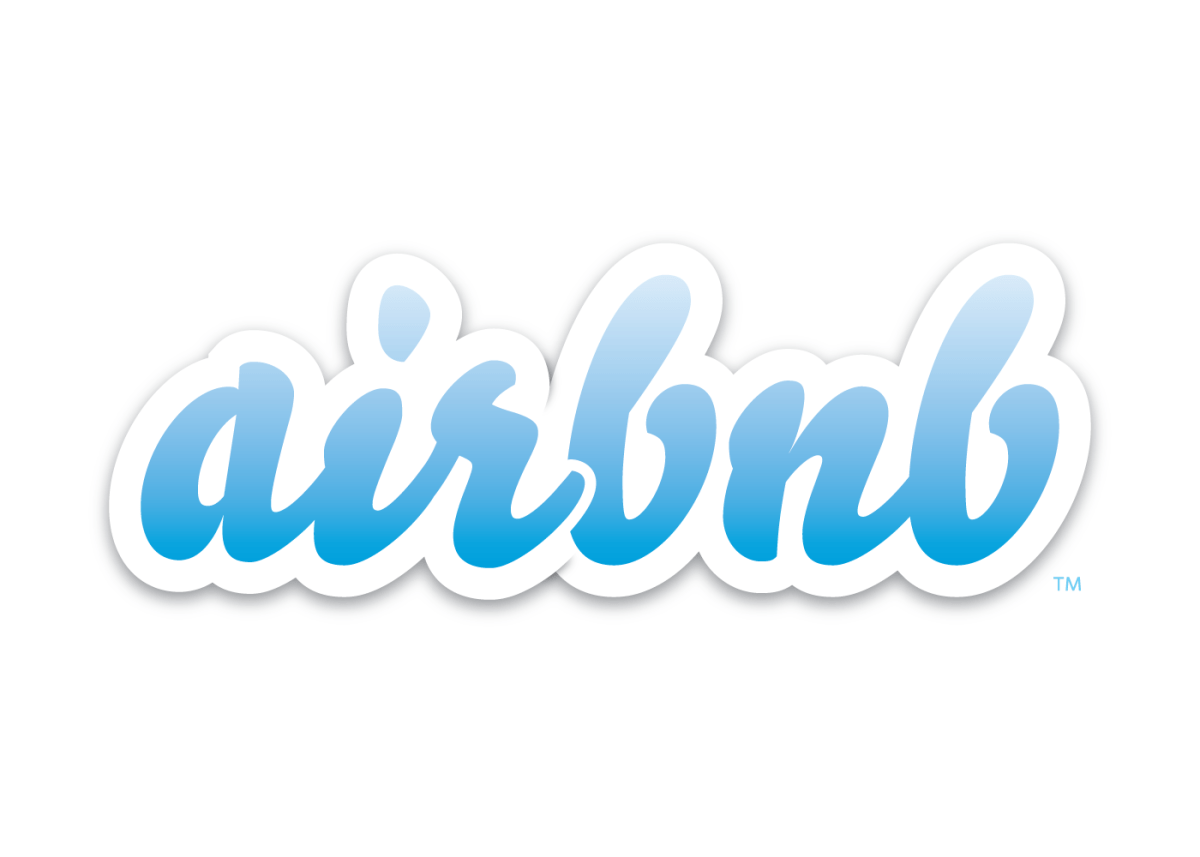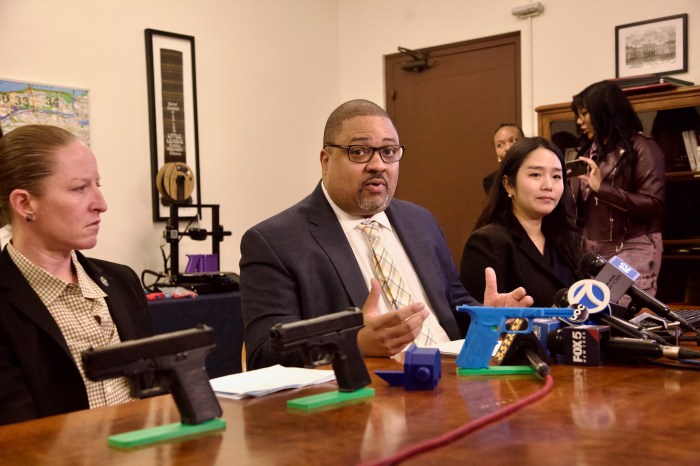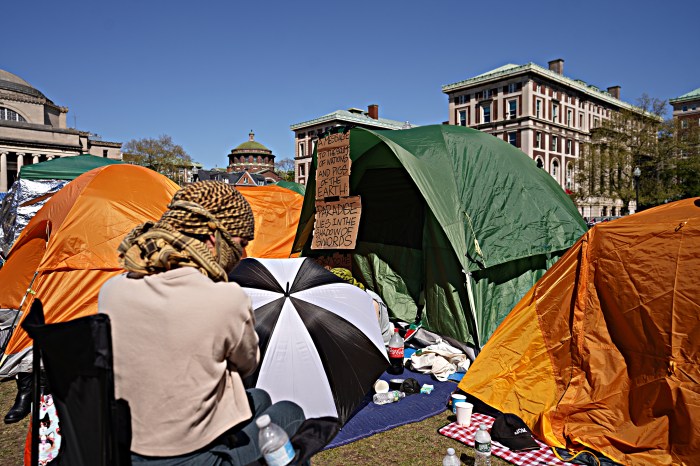BY SAM SPOKONY
UPDATE, MAY 21: Representatives of the Attorney General’s Office and Airbnb released a joint statement on the morning of May 21, announcing that Airbnb has agreed to comply with the A.G.’s May 14 subpoena. According to the terms of that agreement, Airbnb will first provide the A.G. with an anonymized list of those who have rented apartments through the website (with personal information such as names, email addresses telephone numbers redacted). From that list, the A.G. will then be able to notify Airbnb which users are “subjects of an investigation or potential [legal] enforcement action,” and will subsequently be able to compel Airbnb to quickly hand over personal information about those specific users. As part of the new agreement, Airbnb also said that it will add a feature to its website that will clearly display New York State apartment rental laws to any new site users who are listing an apartment within the state. “Airbnb and the Office of the Attorney General have worked tirelessly over the past six months to come to an agreement that appropriately balances Attorney General [Eric] Schneiderman’s commitment to protecting New York’s residents and tourists from illegal hotels with Airbnb’s concerns about the privacy of thousands of other hosts,” said the May 21 joint statement, by Janet Sabel, First Deputy Attorney General of Affirmative Litigation for the Attorney General, and Darren Weingard, Deputy General Counsel of Airbnb. “The arrangement we have reached today for compliance with the Office of the Attorney General subpoena strikes this balance.”
_ _ _ _ _ _ _ _ _
Just one day after a judge blocked state Attorney General Eric Schneiderman’s subpoena of Airbnb — the popular “home-sharing” site — based on a technicality, Schneiderman issued a new subpoena that purportedly addresses that technical matter.
Through the subpoena, the attorney general seeks to force Airbnb — a San Francisco-based company that operates in cities around the globe — to hand over customer records. Those records would be used to determine if, and how many, users of the site have violated a 2010 state law (sometimes referred to as the “illegal hotel law”) that makes it illegal to rent out a residential apartment in New York City for less than 30 days if the leaseholder or owner of that unit is not also present.
“The time has come for Airbnb to stop shielding hosts who may be violating a law that provides vital protections for building residents and tourists,” said Matt Mittenthal, an attorney general spokesperson, in a statement released after the new subpoena was issued on the evening of Wed., May 14.
In a decision released the day before, State Supreme Court Justice Gerald Connolly blocked the first subpoena, ruling that it was too broad because it targeted Airbnb customers throughout the state, rather than only in New York City, where the 2010 illegal hotel law applies.
Immediately following that ruling, Airbnb seemed to declare victory by releasing a statement in which the company called Connolly’s decision “good news for New Yorkers who simply want to share their home and the city they love.”
“Now, it’s time for us to work together,’ he vowed, adding, “We look forward to continuing to work with the Attorney General’s Office to make New York stronger for everyone.”
But it now seems that Schneiderman may have the upper hand.
As part of his May 13 decision to block the initial subpoena, Connolly also made a number of rulings that will heavily weigh against Airbnb, if the attorney general’s new subpoena is deemed acceptable in its geographical focus.
“There is evidence that a substantial number of [Airbnb users] may be in violation of the [2010 illegal hotel law],” the judge wrote in that decision. He also went on to write that “the record before the Court indicates that there are [Airbnb users] regularly using their apartments to provide lodging to guests who may not be complying with the state and local tax registration and/or collection requirements.”
That evidence was likely based on research the Attorney General’s Office submitted to the court earlier this year, which stated that as of January 31, Airbnb listed 19,522 apartment rentals in New York City, and only one of those listings required guests to stay for at least 30 days. In addition, 64 percent of those listings were for rentals of the entire apartment, meaning the host “presumably would not be present during the rental period,” according to the attorney general’s researcher.
Referring to Airbnb’s other arguments against Schneiderman’s action, Connolly also found in his May 13 ruling that the home-sharing company had failed to prove that the initial subpoena was “unduly burdensome” or that the customer records requested by the attorney general were confidential.
That is what set the stage for the attorney general’s subsequent action on the following day.
“Since the judge rejected all of Airbnb’s arguments except for a narrow technical matter, our office has served the company with a new subpoena that addresses that issue,” said Mittenthal, in his May 14 statement.
The statement did not specify exactly how the technical issue will be addressed, but the new subpoena will likely be specifically focused only on New York City users of Airbnb.
Following the issuance of the new subpoena, Airbnb responded by saying it was “disappointing that the Attorney General’s Office continues to demand private information about thousands of Airbnb hosts, so many of whom struggle every day just to make ends meet.”
In interviews earlier on May 14, even before the new subpoena had been issued, supporters of Schneiderman’s investigation were optimistic.
“I feel like it’s a win,” said state Senator Liz Krueger, who sponsored the illegal hotel law, referring to Connolly’s ruling. She has long railed against Airbnb’s media campaigns in New York City. She added that both tenants and landlords have called her office many times to complain about the “nightmare” of dealing with short-term apartment rentals, citing security concerns due to the presence of strangers in their residential buildings.
Krueger also stressed her belief that Airbnb’s apartment rentals are having a negative impact on affordable housing in the city.
“We’re finding over and over again that a huge portion of the apartments that show up on Airbnb, as well as similar sites, are in 421a buildings and buildings with rent-regulated units,” she said, referring to the state’s 421a program that provides tax breaks to developers for including 20 percent affordable housing in a building.
Our sister publication, The Villager, reported in March on a Nolita building in which two previously rent-stabilized apartments were believed to have been illegally deregulated after being used for several years as Airbnb rentals. In that case, a broker later advertised the two units online at market rate after removing them from Airbnb, but hastily deleted the listings from his website after The Villager inquired about their history in rent-stabilization.
Given the recent release of Mayor de Blasio’s major, 10-year affordable housing plan — which seeks to preserve 120,000 affordable units and build 80,000 more — Airbnb opponents in the city are also calling on the mayor to reject the home-sharing site’s efforts to further embed itself within the local economy.
One of the most outspoken opponents is Manhattan Borough President Gale Brewer, who, in a May 13 letter to de Blasio, asked him to oppose Airbnb’s business model, and to also oppose recently introduced state legislation that seeks to legalize short-term apartment rentals.
“Illegal rentals through Airbnb have to be part of the discussion when we talk about affordable housing, because the fact is that they take rent-regulated units off the market,” Brewer told The Villager. “It’s something that deals directly with the preservation aspect of the mayor’s affordable housing plan, so we need to be talking about it in that context.”
The Mayor’s Office did not respond to a request for comment.
New York State Homes and Community Renewal, the state agency that oversees rent-regulation, also did not respond to a request for comment.


















